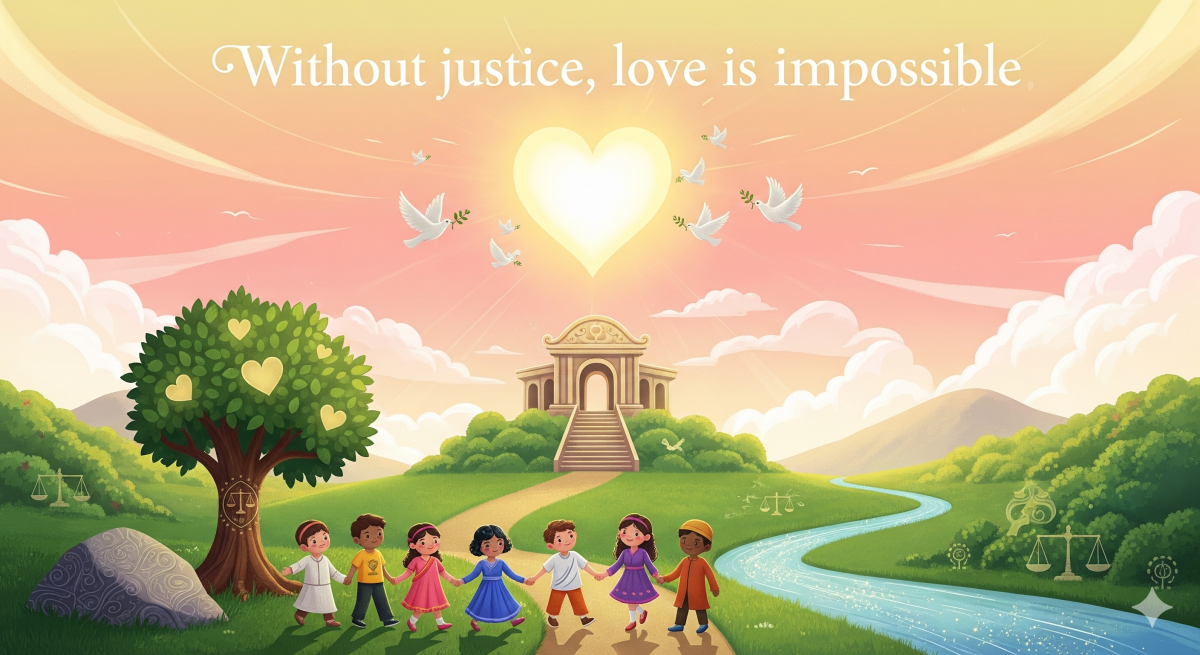Written by Jermaine Magethe | Inspired by bell hooks’ All About Love
When bell hooks wrote “there can be no love without justice,” she stripped love of its sentimentality. Love is not a feeling we stumble into. It is a daily choice to protect, nurture, and affirm the humanity of others. Without justice, love collapses into a hollow promise.
Nowhere is this more urgent than in how we treat children.
Too often, children are told they are loved even in environments where their dignity is stripped away. They are disciplined with pain, silenced when they speak, and denied the right to be heard. As hooks reminds us, abuse and neglect cannot coexist with love. Abuse negates love. Love, if it is real, is grounded in care, affirmation, and respect.
The private family home is celebrated as a place of warmth and belonging. Yet it is also the one institutionalized sphere where authoritarian power often goes unchecked. Parents, as absolute rulers, can decide what is “best” without question. When children’s rights are violated within those walls, they have little to no legal recourse.
Think of the paradox. If a man admitted to pinching his wife every time she disobeyed, society would condemn him. But when parents pinch, slap, or humiliate their children, many shrug it off as normal discipline. We are appalled by intimate partner violence, yet indifferent when the same coercion is used on children.
This double standard is playing out in Kenya today. Public figures have recently called for the return of corporal punishment in schools, framing it as the only way to restore discipline. Chiefs, politicians, and even educators argue that the cane is necessary to curb student unrest.
But here is the tension: Kenya’s Constitution and the Children Act (2022) outlaw corporal punishment in all settings. Legally, children are entitled to protection from all forms of violence, including caning. The law recognizes what bell hooks insist violence cannot be rebranded as love.
To return to the cane would be to tell children that pain is care, that fear is love, and that justice does not belong to them. It would make abuse normal again, cloaked in the language of protection.
If we want to build a culture of love in Kenya, we must begin by grounding love in justice for children. This means:
Rejecting violence as discipline – There is no justice in harm, and therefore no love.
Creating child-safe institutions – Homes, schools, churches, and community centers must be spaces where children’s dignity is non-negotiable.
Listening to children – They may be young, but they are not voiceless. Justice requires that we hear and respect their perspectives.
Supporting alternatives – Counseling, mentorship, restorative justice approaches, and positive discipline methods can guide children without stripping them of their humanity.
Love is not about control. Love is about commitment to another’s growth. And for children, that commitment can only be real when adults choose justice.
Imagine a Kenya where children do not fear the people who claim to love them. Imagine homes where power is balanced with empathy, schools where discipline means guidance rather than harm, and a society where children’s rights are as fiercely defended as any other civil right.
This vision is possible. But it requires us to confront the myths that allow abuse to masquerade as care. It requires courage to stand against cultural norms that equate pain with discipline. And it requires us, as a nation, to embrace what bell hooks named so clearly:
“Without justice, love is impossible.”
At Mtoto News, we hold fast to this truth. Making children visible is not just about storytelling. It is about reshaping the culture itself; so that every child grows up not only hearing the word “love,” but living its reality through justice.

